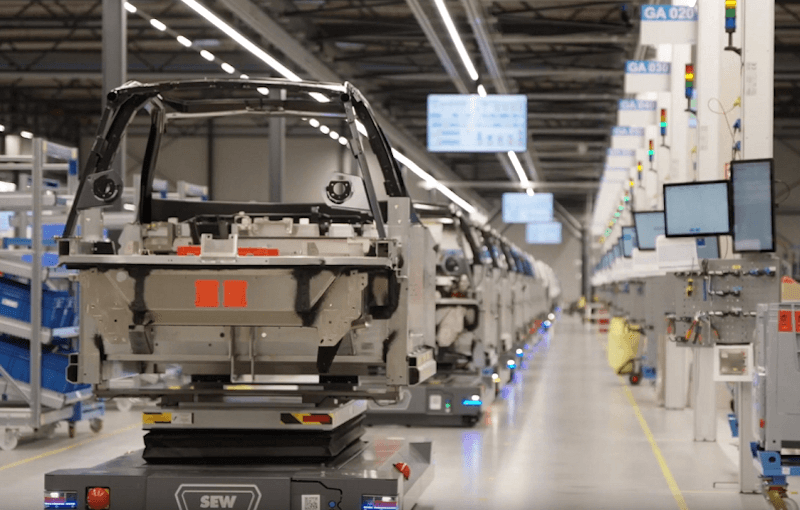Its arrival has been said to herald the next generation of innovation, but in a world where we’re already conditioned to expect near-instantaneous speed from our mobile internet, what kind of change can we actually expect to see from 5G?
It’s easy to forget that much of what we take for granted – browsing Facebook, checking email, watching YouTube videos – wasn’t easily achievable on smartphones less than a decade ago, and only through the advent of 4G could services like Netflix, Spotify and Skype thrive to become the staple apps we know them as today. In many ways, consumers have been spoilt for choice in the age of 4G, which begs the question: do we really need faster internet? More precisely: do we really need 5G?
The overriding assumption, at least among consumers, is that 5G will make life just that much more convenient – movies downloaded in seconds, streaming without the buffering, and flawless smart home connectivity. And while all these things are good and true, 5G will mean more than just incremental change when it comes to the world of business. In fact, most experts believe 5G will be a gamechanger, revolutionising entire industries to contribute what some economists predict will be a whopping $13.2 trillion to the global economy in the next 15 years.
These are all big statements to take in, but just as 4G transformed the world of apps, social media, and streaming for everyday users, 5G is set to breathe new life into how businesses innovate, providing access to previously out of reach technologies to a greater number of industries than ever before.
We can see this in industries like healthcare where 5G’s low latency (ie. the time it takes to receive and respond to network requests) will make remote surgery more reliable and widespread than ever before, providing health care to millions of people in hard-to-reach locations. The latest in wireless technology is also set to make driverless cars a safer, more reliable reality in the future as 5G will enable cars to ‘talk’ to each other, seamlessly sharing data about things like route, speed and location.
Manufacturing, meanwhile, will experience some of the biggest changes in the age of 5G by incentivising the growth of automation and process optimisation to make production more efficient. German car manufacturer e.GO, for example, has created a fully automated factory run entirely on a 5G network, allowing it to build more affordable electric cars and saving the company millions.
In New Zealand, where 5G is in its infancy, active use cases are still few and far between. But Vodafone – which became the first telco in New Zealand to switch on its 5G network last month – is hard at work trying to change that, securing several high profile ‘co-creation partners’ in an effort to showcase what 5G can do. In October, Vodafone and its partners BNZ, Waste Management and the New Zealand Police travelled to Europe to see 5G in action, visiting e.GO’s German factory before travelling to Italy where connected ambulances transferred patient information to hospitals in real time and police used drone cameras to detect threats on the ground.
“5G has a really strong element of partnership and collaboration. No single company is going to develop these use cases by themselves,” says Matt Hitti, Vodafone’s strategy and architecture lead who’s been running the company’s co-creation workshops. “[Our approach has been to first ] draw upon the Vodafone companies globally, particularly in Europe where 5G use cases are already quite advanced.”
https://www.youtube.com/watch?v=5W5Li-CUUYs
Back home, New Zealand Police have begun to draw inspiration from some of these use cases and investigate what possibilities 5G could offer, such as a 5G enabled drone. Equipped to capture scenes in ultra-high definition, footage from these drones can be instantly fed to police officers who can then monitor the situation via their smartphones. There is also the opportunity that Police could use these drones to 3D model crash scenes, helping to reduce road closure times and get traffic back to normal sooner rather than later.
“To have 4K high-definition streaming into our command centres from a mobile environment would make a huge difference to how we police,” Chief Information Officer Rob Cochrane told the audience at Vodafone’s launch event last month. “While drone footage over a 4G connection is useful, with a 5G network connection the quality improves dramatically meaning we can scan the environment allowing a faster response to keep the community safe.”
Hitti and his team are also looking at how 5G can help organisations like Westpac Rescue Helicopter, another one of Vodafone’s co-creation partners.
“Right now, we’re looking at how the 5G technology can help paramedics on a rescue mission,” Hitti says. “For example, we know that as a person gets under more physical and psychological stress, their decision-making ability can be compromised, so we’re looking at ways [at using technology] to keep an eye on that, helping frontline staff perform at their best.”
With dozens of farms stretching from the Far North to the deep south, Pāmu is one of the country’s biggest farmers, contributing to an industry that generates billions of dollars to New Zealand’s economy every year. Yet agriculture, both here and around the world, is going through a time of significant upheaval as scrutiny turns to the sector’s impact on the environment, animal welfare, and health and safety among its staff.
Nowadays, the public demands a lot more from its farmers, which is why Rob Ford, Pāmu’s general manager of innovation, environment and technology, believes 5G could have an important role to play. Although the company is still in early stages of looking at what it can do with the 5G network, Ford is confident it’ll play a key part in not only how data is collected, stored and shared, but also how it can keep staff safe from hazardous situations.
“An emerging trend in agriculture is that consumers are a lot more discerning. They really want to make sure the products they consume are produced [in an environment] where staff are kept safe, the environment is cared for, and animals are treated well. The only way for consumers to have comfort is to have access to information, especially in real-time,” he says.
“There’s a lot of data that needs to be collected on farms. Most farmers now collect data on things like production and land use which then needs to go somewhere. [5G] can bring a lot of that data to a centralised host, run the analytics, and then turn that into information. We can then push that back to the farms to help them make better decisions day-to-day.
“Rainfall, soil temperature, and soil moisture are all really important on farms, but although there’s a wide range of [measuring] devices out there, there’s never really been a network for these devices to hook into. 5G could change that.
“Drones are another big opportunity on farms. It would be great to send a drone into a particular area on a farm when you don’t want to send staff out there, maybe because it’s bad weather… I also see it [better connecting us] to staff, especially those that are working on a farm alone and a long way from head office.”
A key consideration for businesses exploring 5G will, of course, be the cost. Like all disruptive technologies, investment will be key to making things work. True innovation hardly comes cheap, but Vodafone business director Lindsay Zwart says the payoff for businesses – whether that be in revenue or customer engagement – makes the technology a worthwhile investment.
“Everything we do with our customers has to have a significant ROI (return on investment),” says Zwart. “So when we start working with our customers, we start by saying ‘sure, 5G is cool but what will it actually mean for you?’ Are you trying to reduce operational costs? Are you trying to reduce the number of injuries in the workplace?
“Once you identify some of those problems you then work out how the technology can help you do that. In a lot of cases, it’s simply a matter of increasing security via network slicing (siloing a portion of the network for secure, dedicated use) or improving response and reaction times for end customers.”
Hitti adds that an additional way to view the development of use cases is in terms of “return on innovation”, taking into consideration what businesses can learn along the way, such as how to collaborate better with partners, and how different technologies can improve business processes and user experience
“There’s a mindset shift that businesses have got to go on and it’s one we’re going on ourselves at Vodafone,” he says. “In many ways, 5G is a real catalyst for that.”
Over the next three years, Vodafone plans to have 1,500 existing cell sites upgraded to 5G – up from the initial 100 cell sites that are currently live in parts of Auckland, Wellington, Christchurch and Queenstown. And with more businesses signing up to 5G every week, it won’t be long before we start to see innovative new use cases from businesses, many of which will be impossible to predict and surprising us in both significant and novel ways. After all, as Zwart points out: “When 4G first launched more than a decade ago, who would’ve thought we’d have TikTok and Snapchat on our phones?”

